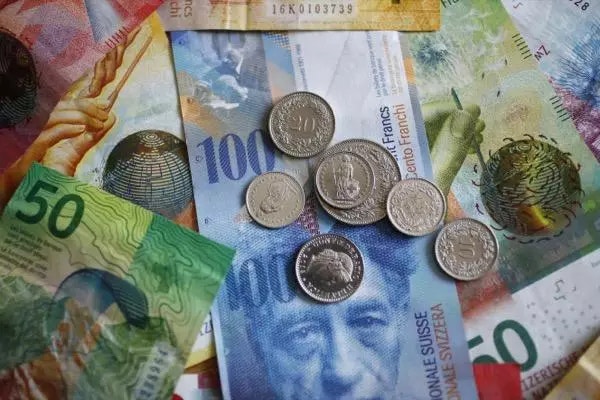Swiss franc: strongest currency of the decade

Key points
- US dollar is down -5.5% against the Swiss franc since 2014
- CHF is up almost 50% against Japanese yen since 2014
- The Swiss franc has been positively correlated with gold in recent years - which is also experiencing historic strength
In the world of foreign exchange, the Swiss franc (CHF) has been making waves as one of the strongest currencies in recent times. Its performance against major currencies such as the US dollar (USD), euro (EUR), and British pound (GBP) has been noteworthy, especially considering the relatively conservative approach Switzerland has taken towards monetary policy.
Swiss strength: unique policy and political neutrality
The Swiss Franc is also considered a "risk-off" currency, meaning it tends to appreciate during times of geopolitical uncertainty or market volatility. Historically, the CHF has been highly correlated with gold, which is often seen as a safe-haven asset during turbulent times. For instance, when gold prices surged above $2,000—an unusual event—the Swiss Franc also showed considerable strength.
This phenomenon can be partly attributed to Switzerland's long-standing policy of neutrality in global conflicts, which has contributed to the perception of the Swiss franc as a stable and secure investment.
Forex dynamics
Forex trading is fundamentally about the relationships between currencies and the global economic landscape. While the US dollar often captures headlines due to the sheer size of the American economy and the volume of USD-based pairs, it's essential for traders to consider the broader global context. This includes examining currency crosses like CHF/EUR, GBP/CHF, and CHF/JPY, which can provide a more nuanced view of currency dynamics.
In the past decade, the US Dollar has appreciated more than 20% against most major currencies. However, the Swiss franc stands out as an exception, with USD actually declining against the CHF during the same period. This divergence underscores the unique position of the Swiss franc in the global currency markets.
The SNB's policy of maintaining a strong franc has implications for Switzerland's economy, which relies heavily on imports. A robust CHF can lower the cost of imported goods and services, which is beneficial for a country that does not produce a wide array of commodities.
In conclusion, the Swiss franc's strength, driven by Switzerland's distinct monetary policy and its status as a safe-haven currency, presents both opportunities and challenges for traders. Its relative stability compared to other currencies may offer a lower-volatility option for those looking to diversify their forex portfolios or hedge against geopolitical risks. As global financial conditions evolve, the Swiss Franc will undoubtedly remain a currency of significant interest, demonstrating the importance of understanding the intricacies of each currency and its place within the global economic order.
How to trade Swiss franc
- Open an account to get started, or practice on a demo account
- Choose your forex trading platform
- Open and close positions on CHF pairs
Trading forex requires an account with a forex provider like tastyfx. Many traders also watch major forex pairs like EUR/USD and USD/JPY, which can be found in tastyfx's platform under the 'Major' pairs tab, for potential opportunities based on economic events such as inflation releases or interest rate decisions. Economic events can produce more volatility for forex pairs, which can mean greater potential profits and losses as risks can increase at these times.
You can help develop your forex trading strategies using resources like tastyfx’s YouTube channel. Our curated playlists can help you stay up to date on current markets and understanding key terms. Once your strategy is developed, you can follow the above steps to opening an account and getting started trading forex.
Your profit or loss is calculated according to your full position size. Leverage will magnify both your profits and losses. It’s important to manage your risks carefully as losses can exceed your deposit. Ensure you understand the risks and benefits associated with trading leveraged products before you start trading with them. Trade using money you’re comfortable losing.
What is a safe-haven currency?
Currencies are colloquially described as safe haven currencies if their demand increases during times of uncertainty or fear. USD, JPY and CHF often earn this title because of their liquidity and their country's economic or political stability.
This information has been prepared by tastyfx, a trading name of tastyfx LLC. This material does not contain a record of our trading prices, or an offer of, or solicitation for, a transaction in any financial instrument. You should not treat any opinion expressed in this material as a specific inducement to make any investment or follow any strategy, but only as an expression of opinion. This material does not consider your investment objectives, financial situation or needs and is not intended as recommendations appropriate for you. No representation or warranty is given as to the accuracy or completeness of the above information. tastyfx accepts no responsibility for any use that may be made of these comments and for any consequences that result. See our Summary Conflicts Policy, available on our website.

